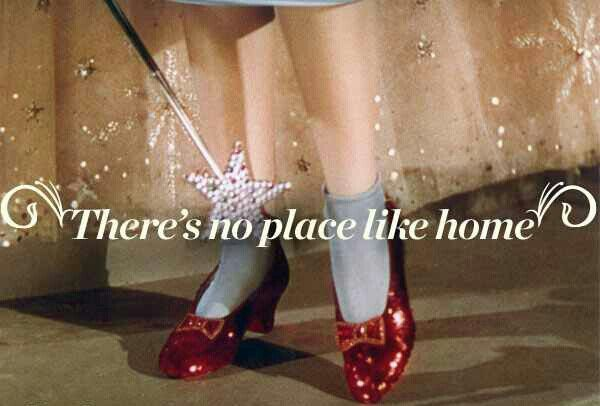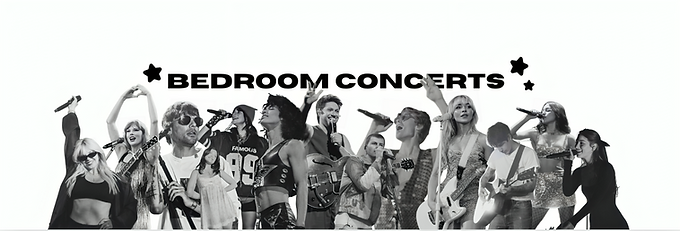"The Dinner" by Role Model : A literary analysis
- czcourtier
- 9 avr.
- 6 min de lecture

In July of 2024, Tucker Pillsbury aka Role Model released an album that changed my life : Kansas Anymore. Through his words, the New England born and raised singer tells us a story of finding your place in the industry while recovering from a breakup with someone you’re still in love with, all while missing your hometown. The entire project is a tale that makes you feel almost uncomfortable as if you’ve entered his mind but you guiltily wanna hear more and more of it.
From my first listen, and to this day, one song stuck out to me for a simple reason, its lyrics.
The Dinner
It is why I have decided to go back to my high school days by presenting you a good old literary analysis of this masterpiece.

As soon as you press play, you are invited into an upbeat melody but despite the joyous sound of his guitar, Tucker transmits cutting emotions we’ve all felt at one point. Through his words, Role Model conveys a strong message of homesickness, loss, heartbreak and hatred towards a city you feel estranged in.
As the title simply indicates, he is at a dinner to which he has been invited. Nevertheless, he describes the entire adventure as an outsider, starting the song by directly explaining to us what is happening in front of him, at the table, as if he is not actively participating. He highlights the superficiality of Los Angeles, of a man talking about his career to a woman going on about medication to make her skinnier (ironically, Ozempic is prescribed to diabetes patients which Tucker suffers from and even often jokes about). The shallow conversation he eavesdrops in seems to be a date ending badly when “she got up and left the table”. Tucker relates it to his own situation through the lyric “guess it’s hard to find an angel when it’s Hell on Earth”. Indeed, when moving to Los Angeles, he had found love with a well-known influencer to whom he dedicated multiple songs in the past including “forever&more” in which he sings “I found an angel wearing plaid, you’ll meet her soon”. He seems out of place in a city after he’s lost his “angel” who herself seems to fit in perfectly in a world of influencers and cameras. Without her, LA is now “Hell on Earth”.
He continues criticising the people he’s spending the night with through their actions. When “they send food back to the kitchen”, Tucker makes his discomfort known to us through the rhetorical question “Could you get much worse ?”. The situation doesn’t align with his values, although it's reasonable to guess that the songwriter might not be objective in his judgement and wants the listener to agree with him. When he sings “Came to dinner as a favour but its feeling more like labor”, we can understand that the artist is trying his hardest to fit in and socialise but everything in this city feels like it has to be related to work. Though his career is the reason he moved to the city in the first place, maybe it’s no longer worth it to him.
It’s too much for the man and he finally decides to get going by telling them “See ya later” and giving them “Hell on Earth”. It’s as if he’s trying to make them understand what he’s going though by returning the gesture. Even if it might make them uncomfortable, he doesn’t care about the consequences it might have anymore.
He then proceeds to sing “I tried my best tonight, don’t know what for” which ties in with the idea that Tucker has lost his way and has no idea what to do with his life and his career.
In the pre chorus, Role Model references The Wizard of Oz, which the entire album is inspired by. With the lyrics “I click my heels three times, we’re not in Kansas Anymore”, (not only does he drop the name of the album) he links his circumstances to the main character of the movie, Dorothy. The latter tried to run away from home and ended up in Oz, another world, where she spent the entirety of her time there to find a way to go back to her family. The Good Witch sends her on a path to find The Wizard who will help her leave but he unfortunately cannot help her. In the end, (spoiler alert) Dorothy realises she had the power to go home the entire movie but only does so at the very end of her adventure. She realised she never wanted to leave home and her loved ones and then click her heels three times to go back to Kansas. Tucker, after trying to join in the parallel world that is Los Angeles, finally realises that he wants to go home. Easily understandable through the chorus in which he pleads someone to take him home.

The repetition in this chorus almost sounds like a cry for help, as if he’s begging us to “take him home”. Though we can ask ourselves, what even is home for him ? Does he want to leave this restaurant and go to his house, away from them or does he truly want to quit, leaving everything behind to find the comfort of his beloved Maine. It is a recurring subject in the album as we hear him state “even when I’m home I ain’t home” in Superglue. He even considers the idea of fleeing in Slipfast where he exclaims “Oh, my God, what I'd pay to just run away from this, let me pay for it later”, where for once he might accept that he would lose so much by escaping this city but he’s okay with it. He’d give all his money and face any consequences as long as he gets to pack it up. He even adds in the bridge “And sometimes I hate this road that I'm taking, I could just move home, no occupation. Throw in the towel, answer to no one. Just let it all burn down”. His music might not be enough anymore to keep him there after he’s lost his lover.
The singer continues to pull apart his entourage while comparing himself to them in the second verse. He highlights the injustice of LA citizens, born of nepotism and raised in privilege through the clever line “unemployed and unashamed”. Tucker, who feels he has to work his hardest to get anything in his career, is surrounded by people who have never known struggle in their life. He highlights his differences with them, he who is “New England born and raised” feels detached from the reality in which he’s living right now, where image and notoriety overcome personality and “common sense”. This refers, once again, to him missing his family and hometown, he can’t help but make parallels between the two cities.
The second pre chorus is a callback to the first one where he sings “Well, I’ve tried my best to find, what I came here for”. The singer emphasises once more this feeling of being lost and powerless for something you yearn for in your life and job. He despises everything this function represents but seems to push through even if he, himself, doesn’t know why.
The next lyrics “I passed the welcome sign as I’m walking out the door”, while proving he finally has taken a decision to walk away from this gathering, show his past relationship never leaves his mind. Indeed, “the welcome sign” is an objectification of his ex, used later in the song Something, Somehow, Someday, in which he describes her through objects and concepts to show they are meant to be together. Though he is, at last, moving on from this uncomfortable situation he’s in, he hasn’t let their romance go yet.

In a last verse, the musician explains once and for all his reasoning behind running off. The line “I know it’s time to go when there’s cocaine on the nose” seems to hint a recurrent pattern he’s been through before. He recognises the signs of an LA party turning into something he desperately does not want to be a part of. Once again, he proves that these have one main goal, which is to show off, through the text “and they start asking who you know”. Wether you’re talented or not, it doesn’t seem to matter in this city.
He finishes the song by admitting, after he’s left and “hit the road” without saying goodbye, that they probably don’t even realise he’s gone. For someone who had been followed by the flashes of cameras whenever he went out with girlfriend around his arm, he is now free to come and go as he pleases. This might actually be something, we can hypothesise, he has done on purpose because of his declaration in the song Frances, “The small chance we’d be together if I didn’t push you out of the spotlight”.
Wether this destructive and omnipresent feeling of homesickness is the reason they have broken up like Superglue references (“You're sleeping in that bed on your own. I shouldn't have to tell you all this shit through the phone”) or The Longest Goodbye ("Between the silence and the mileage, the feelings you were hiding”), it shouldn’t really matter to us. Indeed, no matter the source, the result is the same : a masterpiece.
Role Model’s openness with his feelings and reflection on his past actions have helped birth one of my favourite songs in the world and for that, I am more than grateful.














very much needed analysis thank you 🙏🏼🤓